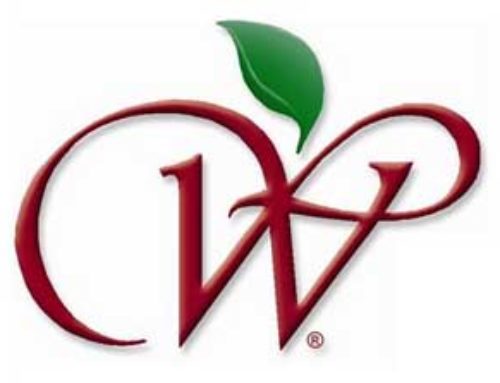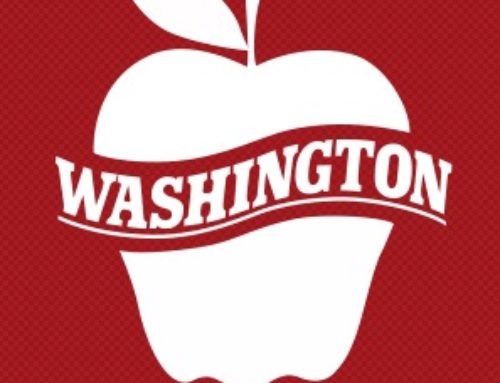
Josh Wakefield, a scientist with Oritain in New Zealand, collects apple samples that will be analyzed for trace elements and stable isotopes, which are specific to where the apples are grown. (Courtesy Oritain Global LLC)
A technique used by forensic scientists to identify bodies at crime scenes is being used by food producers to deter counterfeiting of their products.
A person’s hair and nails show traces of chemicals they have absorbed from the environment, and the chemical fingerprint is unique to each location. By analyzing hair or nails using a technique called stable isotope profiling, criminal investigators can create a timeline of where the victim had been living and traveling in the months or years before being killed.
All plants and animals absorb the natural chemicals of their environment, and similar technology can provide irrefutable forensic evidence of where an apple was grown. This evidence can be used to help combat misrepresentation of products in the market place, such as when inferior fruit is mislabeled as a premium brand.
A company called Oritain, based in Dunedin, New Zealand, is in the business of “food fingerprinting” and helping to protect the brands of wine, honey, and tree fruit producers, among others.
For example, when New Zealand meat producers were accused of supplying contaminated meat in the European Union, Oritain was able to show that the meat originated from elsewhere and the original labels had been removed.
Oritan’s chief executive officer Grant Cochran said food fraud seems to be on the increase. “We became involved because we saw all the effort the farmers go to, to produce a really good product, and want to help them protect that brand,” he said.
In the case of tree fruits, the company takes samples of water, soil, and fruit from the client’s orchard and analyzes the trace elements and stable isotopes. Isotopes are forms of an element that differ in the number of neutrons they contain.
The test results, which form a fingerprint unique to that specific location, are kept in its database. Oritain can later test fruit in the marketplace to see if it matches the fingerprint in the database.
Borton
Borton and Sons in Yakima, Washington, is one of Oritain’s clients and one of the first U.S. apple shippers to use the technology. Sky Johnson, with Borton’s sales and marketing team, said the company sees it as a way to protect the identity of its fruit. Particularly in international markets that the company exports to, there is a risk of fraudulent misrepresentation of apples.
Johnson collected fruit samples from 14 of the company’s orchard sites in Washington using a Global Positioning System, and sent them to New Zealand for Oritain to test in its labs. Many special permits were required to get the apples into New Zealand, where they were held in controlled facilities.
When Borton received results of the analyses from Oritain, Johnson was surprised how much the apples’ chemical fingerprint differed from one location to another, depending partly on whether the soil was volcanic ash or silicone sand, and what was in the soils.
“It was absolutely amazing to see the contents on an atomic level in our apples,” he said. “It was an eye-opening experience. Recognizing what actually makes up an apple is really cool. Each location was drastically different.”
Borton and Sons plans to have all its Honeycrisp blocks put in the database, as well as two new apple brands it is producing, Koru and Rocket, so they can be traced back to the farm.
Johnson sees potential for using the technology on a regional basis as a risk mitigation tool so that apples in the market place could be distinguished as being from Washington.
“It’s about protecting your market space,” he said. “I encourage every shipper to explore this technology simply because it helps protect the Washington apple industry.”
Over time, there will be an increasing need for shippers to do this in order to reassure buyers and consumers about the product’s origin and to protect themselves in the event there’s a misrepresentation in the market place, Johnson said.
“We’re hopeful it will catch on in the United States and help protect our industry.” •






Leave A Comment